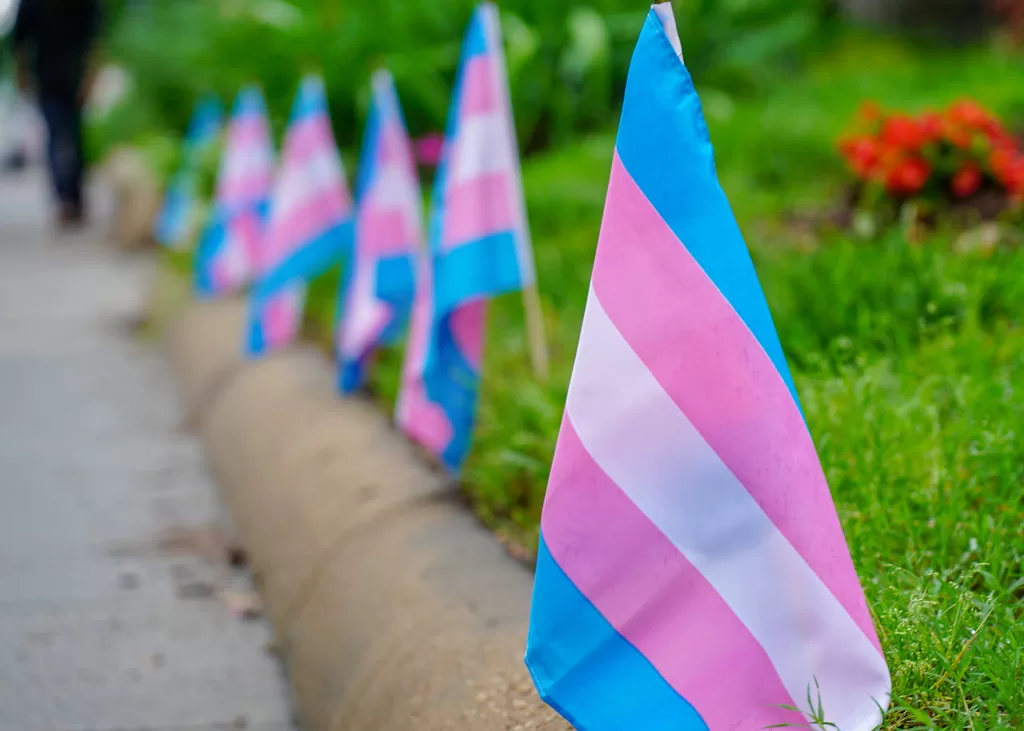It has been a cold, dark road towards dismantling the shackles of homophobia and rebuking the spirit of prejudice and blasphemy that curtains the small society of Botswana. And for transgender activists finding ways to make their voices heard and fight stigmas, art has become an important tool.
In June this year, prominent trans activist Katlego Kolanyane-Kesupile was part of the team that launched the second iteration of the Banana Club Artist Fund, enrolling several LGBTQ+ artists in Botswana for a three month residency aimed at amplifying the voices of marginalised communities through creativity.
Kolanyane-Kesupile is a cultural architect and artivist (or artist-activist), and alongside the Banana Club is also the founder of the Queer Shorts Showcase Festival, an LGBTQ+ themed theatre festival. She uses art to communicate on gender issues and to bring human rights to the fore in Botswana, using creativity as a catalyst for social transformation and mind-set change.
Expressing herself through artivism is the “merging of age-old traditions of storytelling, education and community building,” she told Index.
As part of the PlayCo Black Women Theatre Maker residency in New York, she wrote and produced an Afro-futuristic play. Her work “focuses on marginalised communities and the outputs are focused on creative educational products,” she said, and believes that an artist can also be a critical scholar of human rights and social justice. In fact, she holds a master’s degree in Human Rights, Culture and Social Justice.
At the heart of her craft and expression is a desire to showcase the validity and essence of LGBTQ+ individuals in society and why their experiences matter. Botswana is a country that has made leaps towards acceptance, but where prejudice still runs wild.
Two landmark cases in recent years went a long way to challenging homophobic stances in the country. The first was in 2017, when activist Tshepo Ricki Kgositau became the first trans woman to be allowed to change her gender marker to female on her identity card, after a high court ruling. The second was when same-sex relations were decriminalised at the country’s highest court in 2019. But pushing for more rights and acceptance for LGBTQ+ people has proven difficult.
Botswana has experienced a face-off between the LGBTQ+ community and religious entities, which culminated in a spat during a protest march in the country’s capital city, Gaborone, in July this year. Members of the Evangelical Church community organised the march against a bill that would comply with the 2019 ruling, and make homosexuality legal. Those on the march handed a petition to Parliament, and asked legislators to vote against the bill. The chairperson of the Evangelical Fellowships of Botswana (EFB), Pulafela Siele, said that allowing same-sex relations in Botswana “open[s] the floodgates of immorality and abomination in society”.
Legislator Wynter Mmolotsi, who received the petition on behalf of the National Assembly, said that Parliament is dictated to by the people.
“The only thing that Parliament can do is to make laws that are guided by the values of the country; the values of the people. Parliament can agree or disagree – and make laws that reflect the values of the nation,” he said.
The chief executive director of the organisation of Lesbians Gays and Bisexuals of Botswana (LEGABIBO), Thato Moruti, said that the church’s advocacy not only crippled human rights but also harmed the democracy that Botswana is known to value and prioritise. “The church is setting a dangerous trend of manipulating legislators and the courts. This could cause destabilisation of democracy as they are not only pushing Christian fundamentalism, but also sowing seeds of social discord based on gender and sexual orientation,” he said.
Moruti echoed the need to find common ground and respect the rights of all people, calling for dialogue instead of “combative approaches”.
Kolanyane-Kesupile is not the only trans activist in Botswana using creativity to push for acceptance and the rights of the LGBTQ+ community. Melino Carl is considered Botswana’s first transgender model, and has walked catwalks in Johannesburg, New York and Paris. Fashion is her first love, but growing her artistry and coming out publicly wasn’t easy. She has been assaulted five times and has dealt with being systematically humiliated and ridiculed because of her gender identity and sexual
orientation.
“Homophobia is not taken seriously. So many members of the LGBTQ+ community face discrimination and violence,” Carl told Index.
She said it’s important to highlight the validity of their identity: “Since there are not enough platforms to speak, I express my activism through fashion. I believe that it is a vehicle to inspire and uplift members of the LGBTI community and make them feel validated and boost their self-esteem and confidence.”





